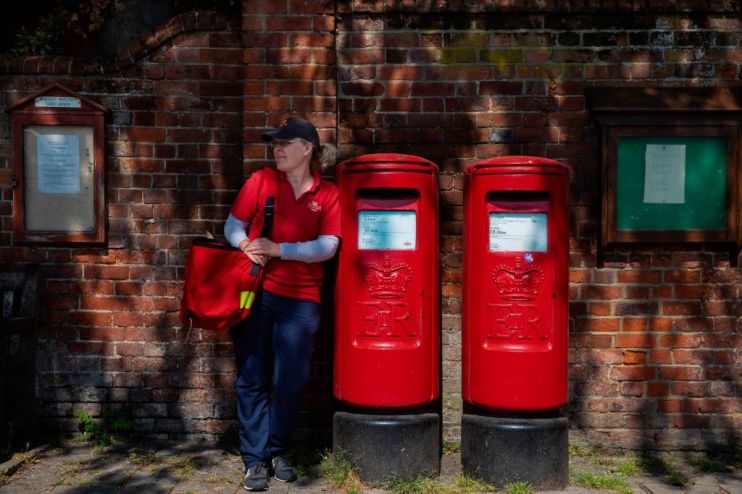Royal Mail to slash 2,000 jobs as profit sinks 25 per cent

Royal Mail is set to make 2,000 staffredundant to save £130m to combat the impact of coronavirus after the sudden departure of its ex-CEO in May.
The postal delivery service said it needed to take “immediate action” on costs after profit before tax plunged 25 per cent to £180m in the financial year to the end of March.
It is also slashing £300m in spending over the next two years to address the impact of coronavirus, which it warned could disproportionately affect its business.
Interim executive chair Keith Williams, who took charge after the unceremonious departure of Rico Back in May, said Royal Mail has pivoted its business too slowly to prioritise parcels over letters.
“In recent years, our UK business has not adapted quickly enough to the changes in our marketplace of more parcels and fewer letters. Covid-19 has accelerated those trends, presenting additional challenges,” he said.
The 2,000 redundancies are set to result from a management restructure, with Royal Mail hoping to realise the savings next year. The redundancy round will mostly affect senior employees.
The figures
Profit before tax crashed 25.3 per cent in the 12 months to the end of March, down from £241m to £180m.
That came despite a 2.4 per cent year-on-year rise in revenue to £10.84m.
Basic earnings per share slipped from 17.5p in Royal Mail’s 2019 financial year to 16.1p.
But Royal Mail’s dividend crashed from 25p last year to 7.5p after the board opted not to pay a final dividend for the year.
Shares fell 2.7 per cent in early trading today to 175p.
Why it’s interesting
Royal Mail posted a dour set of results following the departure of its ex-CEO Rico Back after less than two years in charge.
He left under a cloud in May after Royal Mail’s UK parcels, international and letters business (UKPIL) suffered a £22m revenue hit in April.
Williams, the chairman, has appointed Stuart Simpson as CEO on an interim basis.
Today Williams admitted the UKPIL division dragged down profit, which dropped £124m before specific items.
Over the full financial year, UKPIL profit sank 41.2 per cent to £117m, on revenue 1.6 per cent higher than the previous year.
Parcel volumes grew just two per cent, which Royal Mail blamed on the threat of industrial action and a coronavirus blow to international post.
But profit margins were squeezed to 1.5 per cent, down 110 basis points. Overall Royal Mail’s profit margin shrank from 3.9 per cent to three per cent year on year.
The company’s international parcel arm, GLS, performed better than UKPIL. Back was an enthusiastic supporter of the division and speculation mounted following his departure of a spin-off.
But today Royal Mail made no mention of such a plan, and appointed Martin Seidenberg, who has led the German side of GLS since 2015, as the new CEO of the division.
Coronavirus compounds Royal Mail’s problems
Since March, coronavirus has dealt Royal Mail yet another blow.
Revenue has fallen £29m since the pandemic hit Britain, though the firm said it would be flat without the impact of last year’s European elections.
Excluding the elections’ impact, addressed letter revenues have fallen 23 per cent and volumes are down 33 per cent.
Advertising mail volumes have sunk 63 per cent due to coronavirus, though business mail has dropped a comparatively low 19 per cent.
Still, Royal Mail said parcel volumes have grown 37 per cent between March and June, compared to the previous year. And parcel revenue is up 28 per cent.
Brits have been ordering more items to their home addresses during lockdown, which could partly explain the increase.
Royal Mail warned operating profit has sunk £108m, including the impact of the European elections. And overtime and agency costs due to “high levels of absence” have driven total costs up by £80m.
The company said a “material recession” in the UK that knocks GDP 10 per cent lower – in line with the International Monetary Fund’s revised forecast this week – would “dispropotionately” impact advertising mail.
But a GDP plunge of 15 per cent in 2021-21 and a second lockdown in autumn and winter would prove much worse for the firm.
It predicted that scenario would leave letter volumes “severely impacted throughout the year”. And while parcel volumes would rise in another lockdown, network capacity and lower consumer spending power would limit that growth.
What Royal Mail said
Keith Williams, interim executive chair, said: “In reality, our UK business has been facing significant headwinds for some years. We have not always been as agile as we might have liked when responding to change in the marketplace and customer needs.
“Operationally, our heritage as a letters-focused business means we are not as well positioned as we would like to handle fewer letters and more parcels. These factors, alongside cost increases, are driving significant financial pressures.
“The Covid-19 pandemic presents new, fundamental, challenges to our business model – and to those of our customers. Ensuring a sustainable, contemporary Universal Service requires us to respond to this unprecedented global crisis, as well as adapting to the changing realities of our marketplace.
“Clearly, the unprecedented nature of the Covid-19 pandemic means the outlook is difficult and volatile.
“We are going to continue to tackle the challenges posed by Covid-19. We are implementing a range of immediate cost control activities and reducing capital expenditure in a measured way. Regrettably, one of these measures could see around 2,000 of our managers leave our business.”